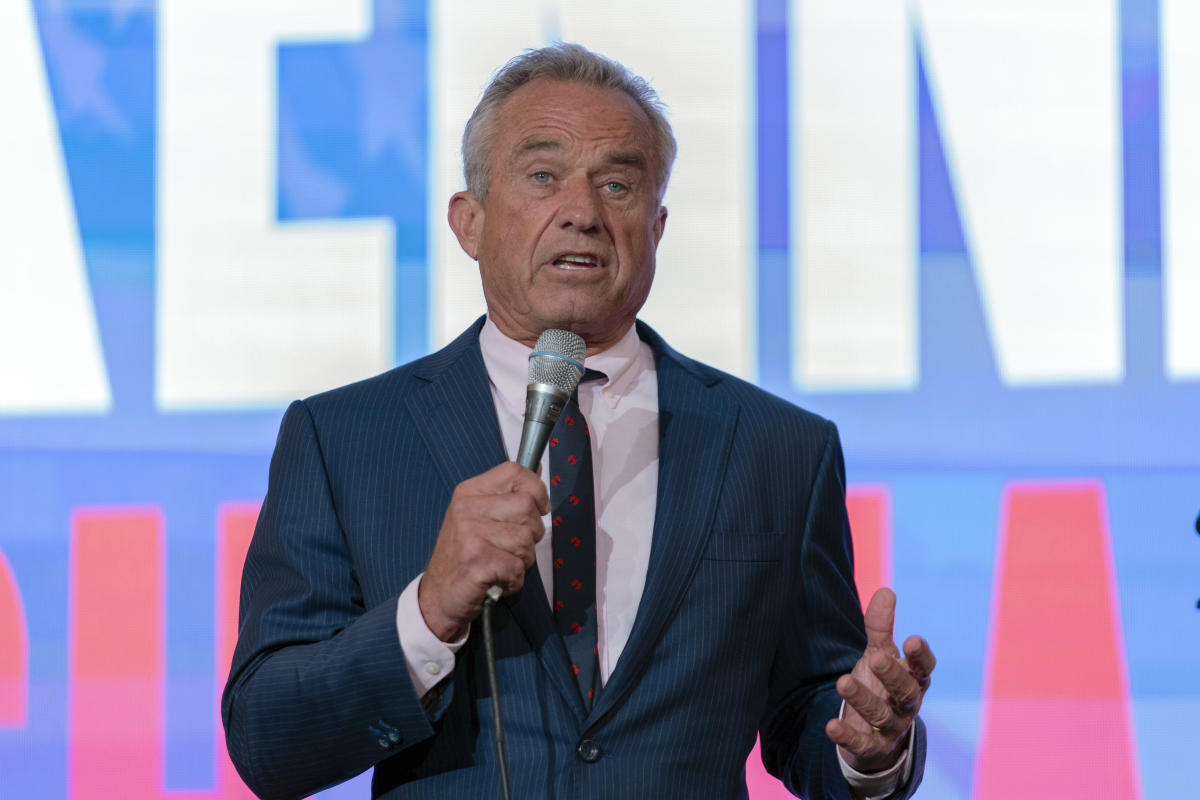Independent presidential candidate Robert F. Kennedy Jr. has reached 15% or more in three national polls.
If he gets one more, he will meet CNN’s benchmark to qualify for a debate on June 27 with President Joe Biden and Republican nominee Donald Trump. However, keeping this level of support until the November election may be hard for Kennedy.
Third-party candidates often show strong poll numbers early on but usually don’t perform well on election day, according to a study by the Associated Press using Gallup data since 1980.
This doesn’t mean the polls about Kennedy are wrong now, but they don’t predict the future election results. People often change their minds, and the election is still months away.
Many voters might support a third-party candidate early on to show their frustration with the main parties, but later they often choose a candidate they think can win or decide not to vote at all.
The idea of a third political party has been popular for a long time. In 1999, a Gallup poll found that two-thirds of U.S. adults wanted a third party to run against Republicans and Democrats.
Since 2013, about 60% of U.S. adults have said the Republican and Democratic parties do such a poor job representing people that a third major party is needed.
Most of this support comes from independents, with 75% saying a third party is needed. About 60% of Republicans and 46% of Democrats also think an alternative is necessary.
Marjorie Hershey, a political science professor at Indiana University, says Americans like the idea of a third party until they see its specific policies and nominees.
People always want more choices, like with ice cream or fast food, but deciding on specifics, like tacos or burgers, is different. This often leads to a breakdown in support for third-party candidates.
The AP study looked at polling for every independent and minor party presidential candidate who got at least 3% of the popular vote since 1980. In several elections, third-party candidates had higher early poll numbers than their actual vote share.
For example, in May and June 1980, between 21% and 24% of voters supported independent candidate John Anderson, but he got only 7% of the vote.
Early polls often don’t match the general election vote because voters don’t know what will happen in the campaign that could change their minds.
In 2016, Libertarian candidate Gary Johnson had between 5% and 12% support in early polls, but he got about 3% of the vote.
Johnson thinks more polling would have helped, but independent candidates also struggle with fundraising. People don’t donate if they think a candidate can’t win, and Johnson said he wouldn’t either.
The American electoral system makes it tough for third parties to succeed, but they can still have an impact. Billionaire Ross Perot, who ran in 1992, is a good example.
He won 19% of the vote, but early polls showed support as high as 39%.
There are signs that some of Kennedy’s support might not last.
A CNN poll from last summer found that 20% of Democrats who might support Kennedy did so because of his name or family connections, and 17% wanted to learn more about him. Only 12% supported his views and policies.
Barbara Perry, a presidential studies expert, said the Kennedy name brings a lot of emotion, which wasn’t there for other candidates like Anderson, Perot, Ralph Nader, and Johnson. Some Americans may also be supporting Kennedy to show their frustration with Biden and Trump.
Marjorie Hershey notes that early poll numbers should be taken with caution as they might not reflect actual political issues, but general views about life.

